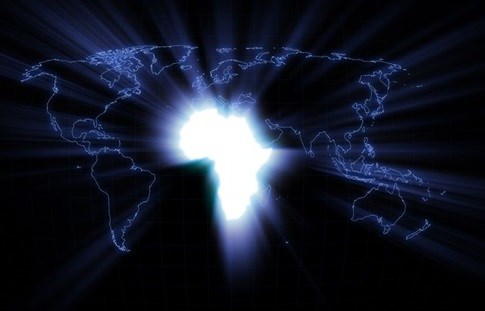Thursday, 20 August saw the fifth edition of Growth, Innovation, and Leadership (GIL) Africa, held at the Table Bay Hotel. C-suite attendees discussed next-level visionary innovation on the topic of convergence and how this will alter the business landscape on the continent.
Kicking off a basic barometer reading that "The growth forecast for Africa looks good", Frost & Sullivan director and senior partner, Dorman Followwill, spoke of disrupters like Uber and Airbnb changing the way we do business on a global scale, which then filters through to the continent.

Tightening the focus on Africa, Followwill said by 2020 we expect 80b connected devices on the continent, with the four trends of augmented reality, 3D and 4D printing, big data and the Internet of Things all forming part of the larger megatrend of connectivity and convergence.
While customisation, social media tracking and wearables are all big trends at the moment, marketers need to question what local uptake will be like. We all love our personal freedom but wearables inhibit this to an extent, so we're nowhere near the predicted uptake just yet and need to understand trends' delimiters, such as this.
Excitingly, Followwill says we're on the edge of the 5G era, where we can expect to download a one-hour HD movie in just six minutes. For business, the implication is on having a connected home and work environment, as well as machine to machine communications.
But it's not just about technology. It's the sad truth that Africans have more access to mobile phones than clean water, bank accounts and electricity - we need equal opportunity for all basic needs to be attainable.
By 2025, there will be an estimated 4b connected devices on the continent. That's a clear sign that Africa's digital economy is set to grow dramatically, and there's a community aspect on the continent as we're set to see growth of African social networks too, with a number of homegrown networks shooting up and filling a void that the existing Western networks don't slot into easily.
Next we need to look to aspects of mobile payment - this market is so advanced it is actually putting Africa in a global leadership position. For example, survey responses put Kenya at 68% mobile M-PESA payments two years ago already, back in 2013. There's also proof that Bitcoin and the like are here to stay. Earlier this year, Goldman Sachs in New York went so far as to make Bitcoin payments a reality, so the opportunity for digital currencies is phenomenal, especially on the continent where traditional banking is met with hesitation.
Added to this, we should get ready for the rise of m-entertainment and more - simply add that 'm' to the front of any market and it's ready to go mobile.
Mark Simoncelli, Global Director of Growth Implementation Solutions at Frost & Sullivan SA also spoke of the evolution of business, with a particular focus on new business models.
The top four of these are:
Back to basics with B2B
When it comes to B2B, Simoncelli says we need to apply some B2C learnings. The many-to-many model of the B2B hypermarket structure is best shown with e-tailers like Alibaba. Other global giants now using online B2B models for sales are AT&T's Digital Life - interestingly, the 'T&T' part of the name stands for 'telephone and telegraph', two of the oldest communication platforms out there, and the company is now successfully competing in the 21st Century by keeping on top of technological advancement.
With C2C models, an example is Instacart. Here, consumers order online and a personal shopper delivers the goods to them. Just Park another peer-to-peer platform, reducing cost of parking by 70% by planning ahead.
The continent also needs to open its eyes to the fact that e-commerce and governance platforms like open-data generate significant revenue. An example of this is Open Data Chicago, with apps such as CrimeAround there to enhance citizens' safety. "We need to see more of that in Africa," says Simoncelli.
Getting it right is simply a case of understanding the disruptive factors affecting business or industry and how you can drive the transformation.
Simoncelli's final case study was on Netflix. They simply gave the business model a tweak to offer DVDs by mail. Production companies weren't happy as they were getting cut out of the deal so we saw the rise of on-demand streaming. This was a further threat so Netflix went and backward -integrated, becoming a successful content creator with shows such as House of Cards.
It's important to understand that connectivity is the key enabler at the moment. Businesses need to explore ways to drive volume and see both products and data as a service, then package them as solutions for customers. We need to explore opportunities to converge with our competition, and source ideas through collaboration. In the end, the best outcome for your business is to create a solution for as many customers as possible, whatever the means.
Digital snapshot: We need to focus on active internet users. The figure is way down in Africa at just 26% but from an uptake perspective, mobile is where we leapfrog. The worst country for mobile in Africa is Eritrea, with just 5% mobile penetration, but the picture is set to change drastically with the sea cables all around continent - the challenge is to then bring them inland from the coast.
That's not a hindrance though, as we have the power to change global business. Take Facebook as an example. It was 1.4b active monthly users, yet when he was interviewed in 2004, Mark Zuckerberg was merely looking to connect 'up to 500 people across US campuses. Just imagine the potential for innovation in Africa...
